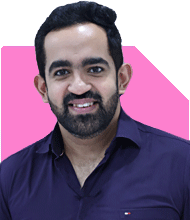Hi sir
Am 46 yr old and my financial investment are as below :
1) recently started SIP with 45k monthly investment.
2) am investing in NPS 20k monthly for last 8 years (currently 25 lacs in nps portfolio)
3) am investing in sukanya 70k annually for past 9 years (currents 8 lacs in portfolio)
4) commercial property worth 1.8 cr generating me rent of 70k monthly
5) 1 flat worth 1.7 cr generating me rent of 40k monthly)
6) 1 floor where am staying worth 1.8 cr has a loan going with emi of 66 k which i plan to close within next 4 to 5 yrs max
7) PF is 22 lacs as of now due to some withdrawals earlier. But am doing additional vpf of 10k monthly apart from 25k which gets invested from my salary
8) my take home salary is 2.7 lacs monthly
I want to retire in another 7 to 8 years.pls suggest what i need to do or plan so as to have monthly 3lacs income
Ans: First off, kudos on taking charge of your financial future. You have a diversified portfolio with multiple investments, and that's great. Let's break down your current investments and see how you can reach your goal of Rs 3 lakhs monthly income post-retirement.
Systematic Investment Plan (SIP)
You've recently started a SIP with a monthly investment of Rs 45,000. SIPs are a fantastic way to build wealth over time. By investing regularly, you benefit from rupee cost averaging and the power of compounding. Given your goal, it's important to keep a close eye on the performance of the mutual funds you've chosen.
If you're in actively managed funds, ensure they consistently outperform their benchmarks. If any fund underperforms for an extended period, consider switching to a better-performing one. Actively managed funds, guided by professional fund managers, can potentially offer higher returns than passive funds.
National Pension System (NPS)
You've been investing Rs 20,000 monthly in NPS for the last eight years, with a current portfolio value of Rs 25 lakhs. NPS is a great choice for retirement planning due to its low cost and tax benefits.
However, NPS comes with certain withdrawal restrictions and partial annuitization at retirement. To maximize benefits, regularly review your asset allocation between equity, corporate bonds, and government securities. Adjust it based on market conditions and your risk tolerance. Given your timeline, consider increasing equity exposure slightly to boost potential returns.
Sukanya Samriddhi Yojana (SSY)
You're investing Rs 70,000 annually in Sukanya Samriddhi Yojana for the past nine years, with a current corpus of Rs 8 lakhs. This is a wonderful scheme for your daughter's future, offering high-interest rates and tax benefits. Keep this investment untouched until maturity to fully benefit from its tax-free interest.
Real Estate Investments
You own commercial property worth Rs 1.8 crores, generating Rs 70,000 monthly rent, and a flat worth Rs 1.7 crores, generating Rs 40,000 monthly rent. These provide a substantial passive income, which is excellent.
However, real estate investments come with risks like maintenance costs, tenant issues, and market fluctuations. While they are stable, they aren't very liquid. Keep this in mind as you plan for retirement, where liquidity can be crucial.
Residential Property and Loan
Your home is worth Rs 1.8 crores, and you're paying an EMI of Rs 66,000. Planning to close this loan within 4-5 years is wise. Once the loan is repaid, your cash flow will improve significantly. Until then, ensure you have a buffer to handle EMIs without stress.
Provident Fund (PF) and Voluntary Provident Fund (VPF)
Your current PF balance is Rs 22 lakhs, with an additional VPF contribution of Rs 10,000 monthly, apart from Rs 25,000 from your salary. Provident Fund is a safe and stable investment, offering guaranteed returns and tax benefits. Your regular contributions will compound over time, providing a substantial corpus at retirement.
Take-Home Salary and Expenses
Your take-home salary is Rs 2.7 lakhs monthly. With disciplined savings and investments, you're on a strong path. However, it's essential to ensure that your expenses are well-managed, allowing you to save and invest consistently. Budgeting is key here. Track your spending and identify areas where you can cut back, if necessary.
Setting Clear Retirement Goals
To retire with a monthly income of Rs 3 lakhs, we need to build a significant corpus. Let's look at the broad strategies to achieve this.
Increase SIP Contributions: If possible, gradually increase your SIP contributions. Even a small increase can make a big difference over time due to compounding.
Asset Allocation: Diversify your investments across different asset classes – equities, debt, and gold. Equities can offer higher returns, debt provides stability, and gold acts as a hedge against inflation.
Tax Efficiency: Ensure your investments are tax-efficient. Utilize all available tax-saving instruments to minimize tax liability and maximize returns.
Emergency Fund: Maintain an emergency fund to cover at least 6-12 months of expenses. This ensures you won't have to dip into your investments during a financial crunch.
Insurance: Adequate life and health insurance are crucial. This protects your family and savings from unforeseen medical expenses or financial loss.
Enhancing Your Investment Strategy
Active Management Over Passive
While passive funds like index funds track a benchmark, actively managed funds aim to outperform it. This can lead to better returns if the fund manager makes smart investment decisions. Since you've not mentioned index funds, it's good to focus on active management where fund managers actively select stocks.
Regular Fund Investments
Direct funds might seem cheaper due to lower expense ratios, but regular funds through a certified financial planner can be beneficial. They offer professional advice and help optimize your portfolio. A financial planner provides valuable insights, ensuring your investments align with your goals and risk tolerance.
Monitoring and Rebalancing
Regularly review and rebalance your portfolio. This involves adjusting your investments to maintain your desired asset allocation. For instance, if equities perform well and exceed your target allocation, sell some and reinvest in underperforming assets. This ensures you stay on track to meet your goals while managing risk.
Maximizing NPS Benefits
As you get closer to retirement, consider shifting some NPS funds to safer assets like government bonds. This reduces risk as you near your goal. Also, explore options within NPS to ensure you're getting the best possible returns with minimal risk.
Building a Robust Retirement Corpus
Given your diverse investments, you're well on your way to building a robust retirement corpus. To achieve Rs 3 lakhs monthly income, let's look at the sources:
Rental Income: Your commercial and residential properties already generate Rs 1.1 lakhs monthly. Ensure properties are well-maintained to avoid tenant turnover and vacancies.
NPS and PF: Continue maximizing contributions to NPS and PF. At retirement, these can be significant sources of income.
SIP and Mutual Funds: Regular SIP investments in mutual funds will grow over time. Ensure a mix of equity and debt funds to balance growth and stability.
VPF Contributions: Your VPF contributions add to your retirement corpus, providing a stable and guaranteed return.
Exploring Additional Investment Options
Equity Investments
Equities offer the potential for high returns but come with higher risk. Given your time frame, you can consider increasing equity exposure. Diversified equity mutual funds or blue-chip stocks can be good options. Ensure you have a balanced approach, considering your risk tolerance.
Debt Instruments
Debt instruments like corporate bonds, government securities, and fixed deposits provide stability and regular income. Allocate a portion of your portfolio to these to balance risk. Look for options offering higher interest rates with good credit ratings.
Gold Investments
Gold is a traditional hedge against inflation and economic uncertainty. Consider investing a small portion of your portfolio in gold through ETFs or sovereign gold bonds. This diversifies your portfolio and adds a layer of security.
Planning for Inflation and Taxes
Inflation Protection
Inflation can erode your purchasing power over time. Ensure your investments grow faster than inflation. Equities and real estate generally outpace inflation, while debt instruments may lag. Keep this in mind while planning your asset allocation.
Tax Planning
Tax-efficient investing is crucial. Utilize available tax deductions and exemptions. For instance, investments in NPS, PF, and certain mutual funds offer tax benefits. Consult with a tax advisor to optimize your tax strategy, ensuring you retain more of your returns.
Financial Discipline and Regular Review
Consistent Investments
Stay disciplined with your investments. Regular contributions, even during market downturns, ensure you benefit from compounding and rupee cost averaging.
Periodic Reviews
Regularly review your financial plan and investments. Life circumstances and market conditions change, requiring adjustments to your strategy. A certified financial planner can help with this, ensuring you stay on track.
Emergency Preparedness
Maintain an emergency fund and adequate insurance coverage. This safeguards your investments and ensures financial stability during unforeseen events.
Final Insights
Your diversified investments and disciplined approach are commendable. To retire with a monthly income of Rs 3 lakhs, focus on maximizing returns, managing risk, and maintaining financial discipline. Regularly review and adjust your portfolio, ensuring it aligns with your goals and risk tolerance. By doing so, you're well on your way to a secure and comfortable retirement.
Best Regards,
K. Ramalingam, MBA, CFP,
Chief Financial Planner,
www.holisticinvestment.in


























